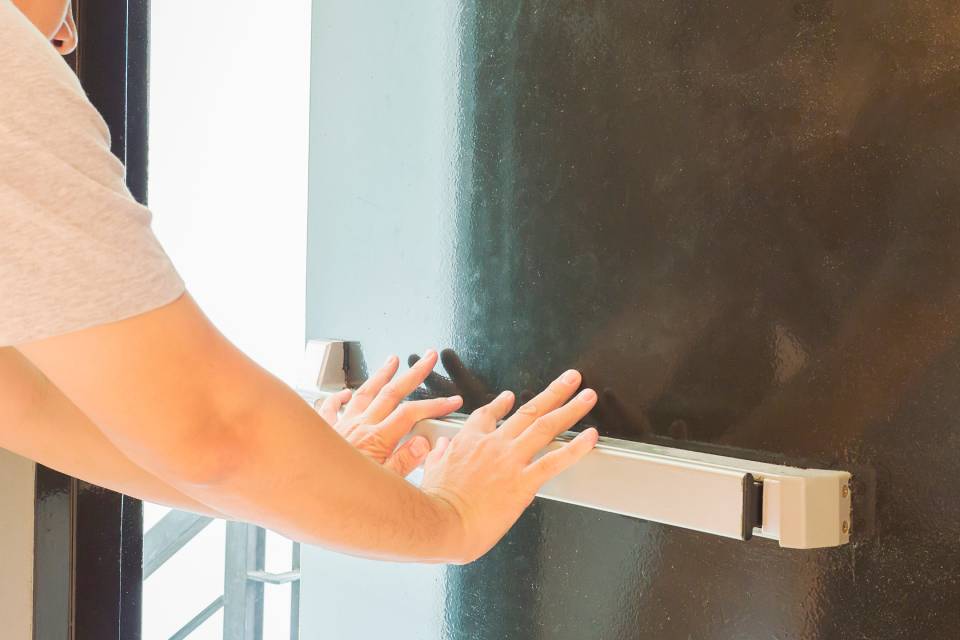When you manage a commercial building, one of your top priorities is ensuring safety, security, and accessibility. Choosing the right door hardware can help you do this. Proper hardware enhances security, ensures smooth operations, and keeps you compliant with safety standards. Whether you need to upgrade pieces or install new systems, you should learn about the hardware you need. Check out this quick list of door hardware every commercial building needs.
Panic Bars
You should use panic bars on your commercial doors to prevent crowding, allowing people to exit without fumbling with locks or door handles. Additionally, OSHA mandates these bars in commercial spaces to ensure everyone has a safe escape route.
These bars come in surface-mounted and concealed options, and your choice depends on your building’s design and occupancy needs.
Access Control Systems
Access control systems redefine how you manage building entry. You probably know these systems from hotels where guests use key cards for room access. Similarly, in your building, employees can swipe or use a biometric scan to enter restricted areas, giving you a clear record of access.
This setup prevents unauthorized entries and allows you to customize who can access different parts of your building. When implementing an access control system, ensure it can expand with your business and sync with other security measures for comprehensive protection.
High-Security Locks
High-security locks are the first line of defense against unauthorized entry. These locks resist tampering and forced entry, offering robust protection for your building. For example, deadbolts and electronic locks provide different levels of security based on your specific needs.
These locks resist bumping, picking, and other forms of tampering. As you select this hardware, match the lock type to your security needs, ensuring compatibility with existing door structures and aesthetics. For instance, a sleek electronic lock might enhance a contemporary office entrance, while a strong deadbolt could suit a warehouse door.
Door Closers
Another piece of door hardware every commercial building needs is door closers. These make doors close securely, maintaining controlled access and improving energy efficiency. Door closers also prevent drafts and help stabilize indoor temperatures, which reduces energy costs.
An automatic closer suits high-traffic entry points, closing doors without a touch. For quieter areas, manual closers provide sufficient control.
Automatic Door Operators
Automatic door operators increase accessibility, making your building welcoming to everyone. Think of a shopping mall entrance where automatic doors swing open, allowing families with strollers, wheelchair users, and shoppers with full hands to pass through easily.
These operators improve user experience and contribute to energy savings by minimizing air exchange. When choosing an automatic opener, make sure it is compatible with the door’s size and weight. Finally, always check that these installations meet accessibility regulations, which helps create an inclusive space.

